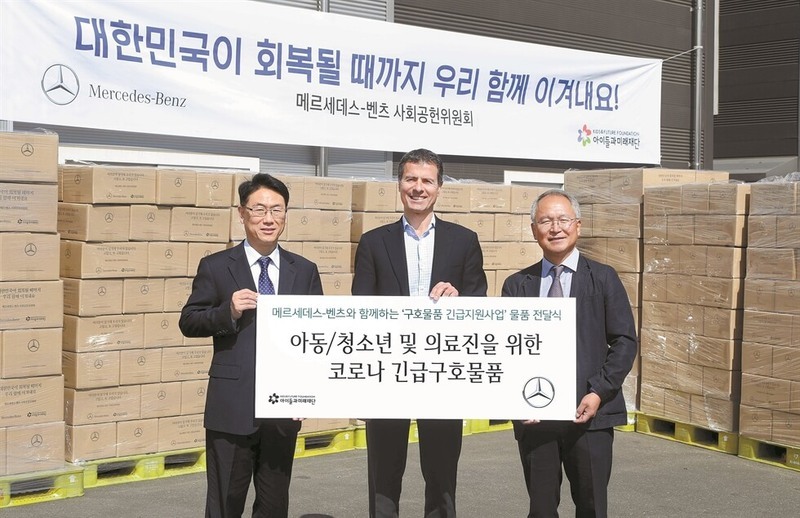
UNEP, partners launch pilot project to build flood-resilient homes in Bangladesh
The United Nations Environment Program (UNEP) and several partners launched a pilot project to build ...

A shrinking global economy and crises in management could be excuses for companies to downsize their corporate social responsibility (CSR) activities.
But 14 companies out of over 500 Korean-German Chamber of Commerce and Industry (KGCCI) members have a broader perspective and are pushing ahead with their philanthropic programs.
These target different groups such as students and the elderly, and also range from donations to community service, scholarships, support for academic research and learning experiences.
The CSR actions, however, lead to the same goal of sustainable development which will ultimately benefit the companies in the long term.
The 14 are Audi Volkswagen Korea, BASF Korea, Bayer Korea, Boehringer Ingelheim Korea, Henkel Korea, Mercedes-Benz Korea, Merck Korea, Porsche Korea, SAP Korea, Siemens Korea, TUV SUD Korea, Wilo Pumps Korea, ZEISS Korea, and KGCCI DEinternational ― a private company under the wing of the KGCCI.
Their deeds from January 2019 to August 2020 were documented in the “2019/20 CSR Report of German Companies in Korea” released by the KGCCI last week.
“When we started preparing this year’s CSR Report, in the midst of the COVID-19 situation, we were wondering if companies had the time and the nerve to focus on the CSR topic at this moment,” KGCCI President and CEO Barbara Zollman said in the introduction to the 17-page report. “We were pleasantly surprised to find out that our member companies indeed had the time and nerve for it.”
She called CSR “a marathon, not a sprint” and that COVID-19 may have prompted some companies to drop CSR programs that could be seen as non-core business over the short term.
“However, it looks like CSR is part of the core business of German companies in Korea, something that you don’t give up in a difficult moment,” she said.
She encouraged more firms to continue with their CSR activities, saying they can be “inspiring and great examples” for others.
In a separate introductory message, Deputy Head of Mission Peter Winkler at the German Embassy in Seoul said CSR “plays a fundamental role especially in times of crisis.”
He noted well-reasoned laws, action plans and charters on CSR encourage a philanthropic mindset among the German entrepreneurs.
“However, what really counts is the commitment of a company to cope with its responsibility for the economy, the environment and society,” he said. “If a company is successful, it benefits the whole society through investments and the creation of jobs. CSR is a clear win-win situation.”
He assessed the 14 companies and the KGCCI as “impressive examples of how companies can make a difference even in times of crisis.”
To combat COVID-19, relief aid packages were offered by Bayer Korea and Mercedes-Benz Korea, and protective ophthalmic equipment was donated by ZEISS Korea. Boehringer Ingelheim Korea and SAP Korea donated 50 million won ($43,000) and 14 million won, respectively.
To help poor elderly people, food and briquettes were supplied by Siemens Korea and hygiene items by TUV SUD Korea.
Among the educational experiences were Audi Volkswagen Korea’s “TOMROAD School” for elementary and middle school students, BASF’s “BASF Kids’ Lab” for elementary school students and Henkel Korea’s “Fun Stay at Home Science Experiments” on YouTube.
Porsche Korea has been financially supporting children talented in the arts, music and sports.
Merck has hosted the Merck Award since 2004 to recognize outstanding scientists and researchers in display technologies.
Wilo Pumps Korea organized a relay blood donation campaign.
The United Nations Environment Program (UNEP) and several partners launched a pilot project to build ...
The European Investment Bank (EIB) is lending €200 million to Sweden-based Electrolux Group, a leading ...
The Global Environment Facility (GEF) has just approved $204.3 million for the United Nations Development ...


اترك تعليقا